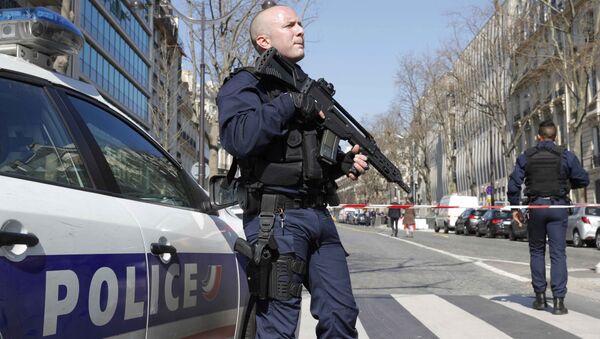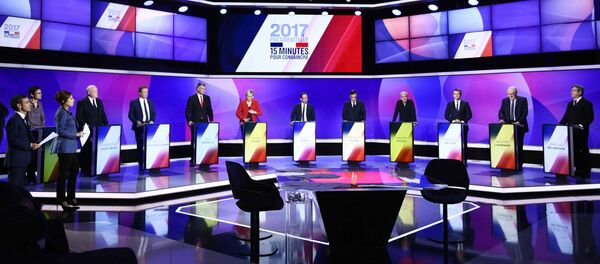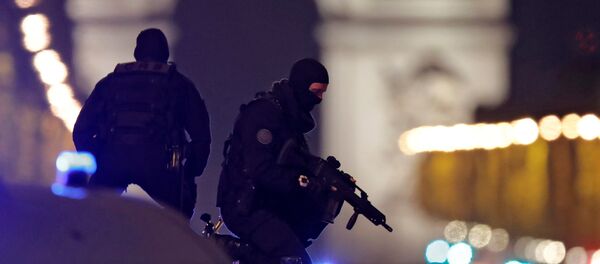ELECTION AS TARGET
On Thursday, a gunman opened fire on police officers in the center of Paris, at the Avenue des Champs-Elysees, killing one police officer and wounding two other police officers as well as a passerby. Shortly after, the Islamic State (ISIL, or Daesh in Arabic) terrorist organization (banned in Russia) reportedly claimed responsibility for the attack.
"It will be a dangerous period. We understand now that Daesh is intent on derailing the presidential elections in France," Jacques Poinas, formerly a head of an anti-terrorist group, told Sputnik.
Poinas pointed out that, while one attack appeared to have been thwarted in the French second largest city of Marseille, where two suspects were detained on Tuesday with weapons and explosive materials reportedly found at the time of detention, security forces might not be able to find out in advance about all the potential attacks.
WORRIES PERSISIT DESPITE HEIGHTENED SECURITY
The security expert said that the police workers received more powerful weapons to be able to counter the attacks.
"The security will be beefed up on the day of the election as much as possible," Poinas said.
A lot will depend on the head of the polling station, who, according to Roger Marion, former head of the National Anti-Terrorist Unit (Division Nationale Antiterroriste), is responsible for the security.
"The presence of armed forces inside polling stations and around is only possible with the authorization of the head of the polling station," Marion told Sputnik.
The expert said that protecting the candidates is the responsibility of the state and the measures that have already been taken are sufficient.
Axel Ronde, the secretary general of the CGT police union, said that unfortunately all of the French were at risk. According to Ronde, the intelligence forces have been too focused on technology, while it would have helped to have agents on the ground.
"Who can think that it is possible to ensure a full protection against isolated individuals?" Gilles Savary, a member of the Socialist Party, told Sputnik.
The lawmaker said that the people acting on their own, in isolation from others, could strike in any place, which increased the level of danger.
WHERE STRIKES ARE LIKELY
Marion stressed that Paris was not the only city that could be targeted and noted that the Thursday attack took place in a location that carries a lot of significance.
"What terrorists are looking for is symbolic targets, representation of state or expression of the French nation. There are several potential sites, outside of Paris," Marion said.
According to Poinas, large cities are more vulnerable than small villages.
Savary suggested that the attack might influence the outcome of the election, but not in any significant way, while Ronde said that the outcome would not be influenced at all.
The terrorist attack might hurt the chances of candidates who treated the terrorist threat less seriously than others, according to Alexandre Vautravers, an expert on terrorism with Geneva Centre for Security Policy (GCSP).
"I think that the candidates who have until now diminished or denied the reality of the terrorist threat, its possible link to the uncontrolled immigration… These candidates will have a problem of credibility from today until Sunday," Vautravers said.
Eric Delbecque, the head of strategic intelligence at SIFARIS consulting company, also believes that the possible effect of the attack cannot be completely ruled out.
According to Delbecque, the candidates who are more used to talking about security might have a boost.
French voters will cast their ballots on Sunday, choosing among 11 candidates registered for the first round of the election. The run-off between the top two contenders is scheduled for May 7.



